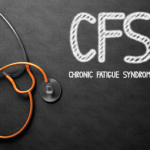 Patients with chronic fatigue syndrome (CFS) not only present a constellation of symptoms, but physicians also use a variety of heterogeneous criteria to diagnose them. Patients’ disease burden is made heavier by the fact that researchers still don’t understand the pathophysiology that underlies this stigmatized and debilitating condition.New research suggests that, although wholesale differences in autonomic parameters may not exist between patients and controls, differences in objective autonomic parameters do exist across different groups of patients with CFS, suggesting that different CFS phenotypes may exist.
Patients with chronic fatigue syndrome (CFS) not only present a constellation of symptoms, but physicians also use a variety of heterogeneous criteria to diagnose them. Patients’ disease burden is made heavier by the fact that researchers still don’t understand the pathophysiology that underlies this stigmatized and debilitating condition.New research suggests that, although wholesale differences in autonomic parameters may not exist between patients and controls, differences in objective autonomic parameters do exist across different groups of patients with CFS, suggesting that different CFS phenotypes may exist.
Laura Maclachlan, PhD, formerly a graduate student at Newcastle University in the U.K., and colleagues published their findings on CFS online Oct. 20 in PLOS One.1 This is the first study to use a validated measure of CFS symptoms, the DePaul Symptom Questionnaire (DSQ), to place CFS patients along a disease spectrum. The investigators recruited 49 individuals with CFS and 10 matched controls, all of whom completed a comprehensive series of tests. In addition to the DSQ, the investigators measured heart rate and blood pressure as indicators of autonomic function, because variability over a 10-minute rest can indicate an imbalance between sympathetic and parasympathetic autonomic function.
The investigators found no significant differences in objective autonomic testing between patients with CFS and controls. Their findings contradict previous studies that showed significant objective differences in autonomic function between CFS and control subjects. The authors suggest their results reflect the fact that sedentary controls were included in their study and individuals with comorbid depression were excluded from the study. Autonomic dysfunction is associated with depression, and thus, removing individuals with depression from the study meant researchers were examining only a specific subset of individuals with autonomic dysfunction.
Although the researchers did not find objective, autonomic dysfunction in the patients with CFS, the patients with CFS reported significantly greater autonomic and cognitive impairment relative to matched sedentary controls. When researchers placed the patients with CFS in subgroups based on their DSQ score, they found different groups had different levels of autonomic dysfunction and cognitive impairment. This finding suggested to them that different CFS criteria may not only diagnose a spectrum of disease severities, but also diagnose different CFS phenotypes or different diseases altogether.
The investigators propose that the differences between the DSQ subgroups may reflect an additive effect of diagnostic criteria. In other words, the absence of autonomic symptoms may suggest a different, less severe disease phenotype with fewer features of autonomic dysfunction. In contrast, more symptoms result in greater symptom burden and disease impairment, leading to a subgroup of patients with greater functional impairment overall.


